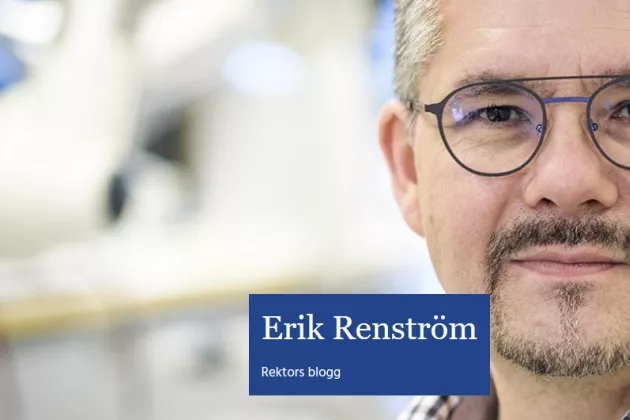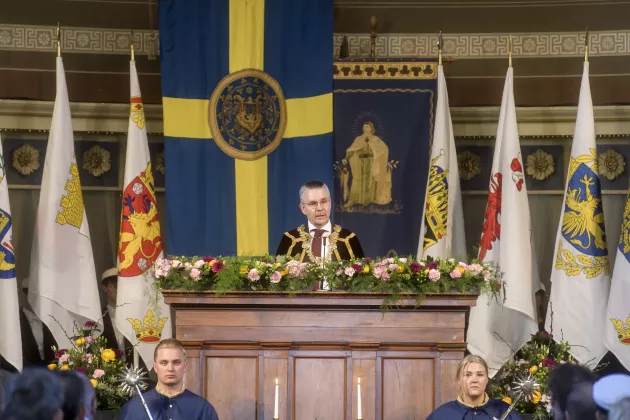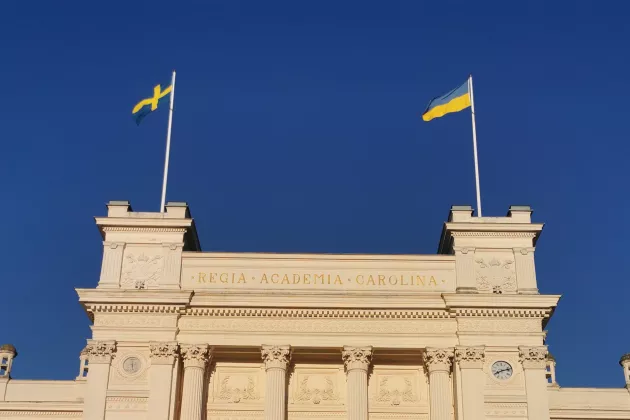Here, we are looking at all possibilities to enable us to take in students, academics and researchers who need to leave their country or will need to study or conduct research in their homeland in the future. We are working according to short-term and long-term perspectives. The war will have consequences for Ukraine, Europe and the University for a long time to come.
The conflict goes to the heart of our own activities, which are based on democracy and freedom – the human and the academic. The international university community therefore needs to work on all fronts to stand up for democracy and freedom.
I would like to point to all the seminars, debates and panel discussions with researchers and experts from the faculties that are now being held (keep an eye on the calendar). There is comprehensive knowledge at the University that can illuminate all aspects of Russia/Ukraine, and of conflict and politics with contemporary and historical insights and with perspective and nuance.
There is also a great commitment among staff and students who want to provide help for people in Ukraine and for their colleagues and friends in the region or those who have fled or been displaced.'
On 17 March, Lund University will hold the seminar Perspectives on and for Ukraine – an Open Seminar Supporting Academic Freedom from 15:00-17:00 in the Main University Building auditorium. Here, speakers and experts will illuminate the situation in Ukraine from several perspectives, not least the effects of the war on democracy, culture and academia. There will be a presentation of Scholars at Risk, which offers a sanctuary to researchers, academics and students under threat around the world, as well as the Development Office’s support programme for students and staff affected by the war in Ukraine, which is open to all those who wish to provide support.
The University is gathering all information on how we are working in light of the war in Ukraine at: www.lu.se/ukraina
After a long pandemic, it is also important that we can rejoice that society has opened up and that there is increasing activity on campus with students studying on site, cycling, walking and warming themselves in the spring sunshine. Now we can begin to analyse how it has gone during the two years of the pandemic and a new report Student performance and drop-out rate during the Covid-19 pandemic (in Swedish) from the Swedish Higher Education Authority (UKÄ), shows that the pandemic has not affected students’ performance and drop-out rate in a noticeably negative way. In the latter phase of the pandemic, performance has even improved, mainly among younger students on study programmes. The drop-out rate in study programmes has remained essentially unchanged during the pandemic compared with previously.
I raise my hat to all students, teaching staff and other staff members who have managed the two years of the pandemic so magnificently and worked so hard. It shows that many are prepared to roll up their sleeves in a crisis.
And now the spring is here. It will be filled with ideas and projects in education, research and external engagement, and as a part of all this – campus development. The latest news, hot off the press, is that the National Property Board has given the go-ahead to start the renovation of the King’s House in Lundagård (in Swedish).
The refurbishment will be vital for the whole of the symbolically important University Square – the building, which has been empty for a couple of years, will again be full of people. Of course, this is only a very small part of the overall campus development in Lund, Malmö and Helsingborg and you can follow all the development projects via the Campus Development Office (in Swedish).
I hope to see you at the Main University Building auditorium on 17 March – for Ukraine and for academic freedom and democracy.
/Erik




